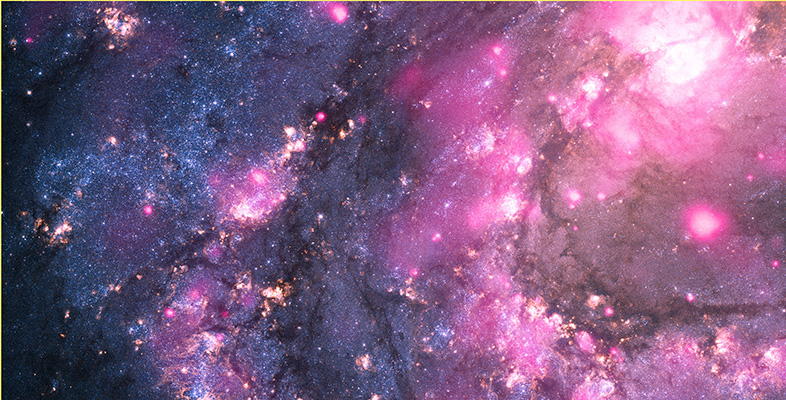3 Appendix: Some highlights of physics
| c. 624 BC | Birth of Thales of Miletus: traditionally 'the first physicist'. |
| 384 BC | Birth of Aristotle: author of Physics. |
| 1543 | Nicolaus Copernicus' De Revolutionibus Orbium Celestium. |
| 1600 | William Gilbert's De Magnete describing the behaviour of magnets. |
| 1609 | Johannes Kepler's first and second laws published in Astronomia Nova. |
| 1632 | Galileo's Dialogue Concerning the Two Chief Systems of the World published. |
| 1638 | Galileo's work on motion described in his Discorsi. |
| 1687 | Newton's laws of motion and gravitation published in his Principia. |
| 1704 | Newton's work on light and spectra described in his Opticks. |
| 1729 | Stephen Gray discovers electrical conduction. |
| 1736 | Leonhard Euler introduces differential equations into mechanics. |
| 1755 | Euler lays the foundations of fluid mechanics. |
| 1784 | Pierre Laplace introduces concept of electric potential. |
| 1785 | Charles Coulomb announces his law of electrostatics. |
| 1799 | Pierre Laplace's Méchanique Céleste (Volume 1). |
| 1801 | Thomas Young demonstrates the wave nature of light. |
| 1803 | John Dalton proposes his atomic theory of matter. |
| 1820 | Hans Oersted demonstrates electromagnetism. |
| 1821 | Michael Faraday demonstrates the principle of the electric motor. |
| 1825 | Sadi Carnot lays the foundations of thermodynamics. |
| 1843 | James Joule determines the mechanical equivalent of heat. |
| 1847 | Hermann von Helmholtz formulates conservation of energy. |
| 1848 | Lord Kelvin proposes the absolute temperature scale. |
| 1849 | Armand Fizeau makes first accurate measurement of the speed of light. |
| 1850 | Rudolf Clausius introduces entropy. |
| 1859 | James Clerk Maxwell develops the kinetic theory of gases. |
| 1865 | Maxwell's Dynamical Theory of the Electromagnetic Field. |
| 1871 | Dmitry Mendeleev's periodic table of the elements. |
| 1877 | Ludwig Boltzmann introduces statistical interpretation of entropy. |
| 1882 | Albert Michelson measures the speed of light. |
| 1887 | Michelson-Morley experiment fails to detect the ether. |
| 1887 | Heinrich Hertz discovers photoelectric effect. |
| 1888 | Heinrich Hertz demonstrates the existence of radio waves. |
| 1895 | Wilhelm Röntgen discovers X-rays. |
| 1896 | Henri Becquerel discovers radioactivity. |
| 1897 | J. J. Thomson discovers the electron. |
| 1900 | Max Planck introduces the quantum. |
| 1905 | Einstein publishes papers on special relativity, Brownian motion and the photoelectric effect. |
| 1911 | Ernest Rutherford announces discovery of the atomic nucleus. |
| 1911 | Victor Hess discovers cosmic rays. |
| 1913 | Niels Bohr's quantum theory of the atom. |
| 1916 | Einstein's general theory of relativity. |
| 1924 | Bose-Einstein statistics introduced. |
| 1925 | Heisenberg introduces quantum mechanics (matrix form). |
| 1925 | Wolfgang Pauli announces the exclusion principle. |
| 1926 | Schrödinger introduces wave mechanics. |
| 1926 | Bom's probability interpretation of quantum mechanics. |
| 1926 | Fermi-Dirac statistics introduced. |
| 1926 | Heisenberg formulates the uncertainty principle. |
| 1928 | The Dirac equation describes relativistic electrons and leads to an understanding of spin and the prediction of antiparticles. |
| 1929 | Edwin Hubble discovers the expansion of the Universe. |
| 1932 | James Chadwick discovers the neutron. |
| 1932 | Carl Anderson discovers the positron. |
| 1934 | Fermi introduces the weak interaction. |
| 1935 | Hideki Yukawa lays the foundation of the strong interaction. |
| 1939 | Otto Hahn and Lise Meitner discover nuclear fission. |
| 1948 | John Bardeen, William Brattain and William Shockley produce the transistor. |
| 1948 | Feynman introduces his diagrams for quantum electrodynamics. |
| 1948 | George Gamow proposes the basis of Big Bang theory. |
| 1964 | Murray Gell-Mann introduces quarks. |
| 1965 | Arno Penzias and Robert Wilson discover cosmic microwave background radiation. |
| 1967 | Jocelyn Bell Burnell discovers first pulsar (a neutron star). |
| 1968 | Steven Weinberg, Abdus Salam and Sheldon Glashow develop unified theory of electroweak interaction. |
| 1972 | Fritsch, Gell-Mann and Bardeen develop quantum chromodynamics. |
| 1977 | Klaus von Klitzing discovers the quantum Hall effect. |
| 1980 | Alan Guth proposes an inflationary early Universe. |
| 1981 | Green and Schwarz introduce superstring theory. |
| 1982 | Alain Aspect conducts experiment demonstrating non-local aspects of quantum physics. |
| 1986 | Bednorz and Mueller discover high-temperature superconductivity. |
| 1991 | CERN confirms the existence of three generations of fundamental particles. |
| 1995 | Witten and Townsend develop M-Theory. |
| 1995 | Cornell, Wieman and Anderson discover Bose-Einstein condensate of atomic gas. |
